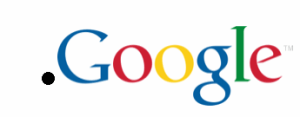
If it gets it, Google wants to turn .search into a “dotless domain,” the company told ICANN a few days ago. Last year, Google applied to manage the .app, .blog, .cloud and .search generic top-level domain (gTLD) names as part of a major expansion of the domain-name system.
ICANN, which is managing this expansion, hasn’t awarded any of the gTLDs yet, and the whole program remains controversial. But in May, Google sent a letter to ICANN telling the organization that it would soon provide some specific details about its plans for these top-level domain names. Now, Google has done so through its Charleston Road Registry subsidiary (we have embedded the full letter below).
At the time, it looked like Google was ready to open up these gTLDs to the public and wasn’t just planning on using them for its own services. In its letter to ICANN, Google now confirms that it is working with “the relevant communities related to .blog and .cloud to develop technical standards relating to the operation of those top-level domains.”
Google’s Plans For A Dotless .Search
The most interesting plan here is to use .search to operate a redirect service on the “on the ‘dotless’ .search domain (http://search/) that, combined with a simple technical standard, will allow a consistent query interface across firms that provide search functionality, and will enable users to easily conduct searches with firms that provide the search functionality that they designate as their preference.”
Dotless domains (think http://example and email addresses like mail@example) are something ICANN has discussed for a while now and that security experts are not in favor of. Google plans to run http://search/ as a redirect service that “allows for registration by any search website providing a simple query interface.”
“The mission of the proposed gTLD, .search, is to provide a domain name space that makes it easier for Internet users to locate and make use of the search functionality of their choice,” Google writes in its amended application.
What exactly this will look like in practice remains to be seen, however. It’s definitely a novel use of the domain system, and judging from the amended application, Google will open this functionality up to third-party developers and its direct competitors.
Of course, it remains to be seen who will actually get to manage .search. Besides Google, Amazon, dot Now Limited, and Donuts.co have also applied for this gTLD.
.Blog, .App and .Cloud
The .blog TLD, Google says, “should be simple and easy for .blog registrants to associate their second-level domain with their blog on the blogging platform of their choice.” New .cloud domains, too, should have a direct association with “projects hosted in cloud platforms.” While it’s not clear how Google plans to do this, the letter notes that the company is working on a set of technical standards that will “allow users to automatically link their domain name to their blog at the time of registration.”
As for .app, Google plans to restrict this TLD to use by “relevant developer communities” without restricting it to a specific platform.














